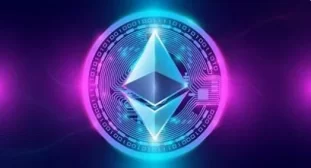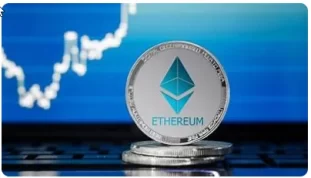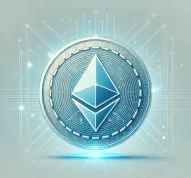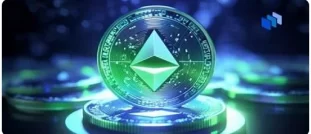Ethereum Explained: Your Beginner-Friendly Guide
Heard about Ethereum but still feel lost? You’re not alone. Let’s go step by step in a simple and engaging way. By the end of this guide, you’ll know what Ethereum is, how it works, and the main things you can actually do with it.

What is Ethereum?
At its heart, Ethereum is more than just a cryptocurrency. It’s a blockchain platform where people can transfer money, launch smart contracts, and build decentralized apps (dApps). If Bitcoin is digital gold, then Ethereum is a multi-tool: money plus programmable functions.

Why Ethereum Matters
The Ethereum network powers DeFi services, NFT marketplaces, crypto games, and much more. It’s open-source, decentralized, and accessible to anyone without banks or middlemen.
How Does Ethereum Work?
Ethereum operates on a public blockchain—a distributed ledger maintained by thousands of nodes worldwide. Every transaction is verified collectively, making the system transparent and resistant to censorship.

Smart Contracts: The Magic Sauce
Smart contracts are programs that run automatically when set conditions are met. Think of them like digital vending machines: no intermediaries needed. They allow instant ETH transfers, NFT launches, and even entire dApps.
Ethereum vs Bitcoin
While Bitcoin is often called “digital gold,” Ethereum is gold plus apps, services, and automation. With ETH, you can not only store value but also interact with decentralized finance, games, and innovative projects.
How to Buy Ethereum Safely
Here’s a beginner’s roadmap:
- Pick a reliable exchange: Coinbase, Binance, or Kraken.
- Create an account: Pass identity verification (KYC).
- Secure your profile: Enable 2FA to protect your funds.
- Deposit funds: Add USD or another supported currency.
- Buy ETH: Enter the amount and confirm your purchase.

Pro tip: never keep large amounts of ETH on exchanges. Use your own wallet for safety.
Ethereum Wallet Guide
To manage your ETH you’ll need a wallet:
- Hot wallets – Online solutions like MetaMask. Easy to use but vulnerable to hacks.
- Cold wallets – Hardware devices like Ledger or Trezor. Best for long-term storage.
Steps for MetaMask setup:
- Install the extension or mobile app.
- Create a strong password.
- Save your recovery phrase securely.
- Connect it to exchanges to transfer ETH.
Golden rule: never share your private keys.
Ethereum Smart Contract Examples for Beginners
Even without coding skills, you can explore:
- Automated ETH payments
- Minting a small NFT collection
- Simple decentralized voting systems
Tools like Remix IDE let you test contracts in a safe environment.
How to Stake Ethereum 2.0
With staking, you lock ETH to support the network and earn rewards:
- Have 32 ETH (or use a staking pool with less).
- Set up a compatible wallet (MetaMask works with pools).
- Select a provider—exchange or decentralized pool.
- Stake ETH and receive regular rewards.
Difference Between ETH and ERC20 Tokens
ETH is Ethereum’s native currency, while ERC20 tokens are built on top of it. Examples:
- USDT, USDC – stablecoins
- UNI – governance token of Uniswap
- Various DeFi tokens
Both ETH and tokens can be stored in the same Ethereum wallet.
Pro Tips for Beginners
- Always check gas fees before transactions.
- Use hardware wallets for significant holdings.
- Start small and learn gradually.
- Stay informed—Ethereum evolves quickly.
- Practice with testnets to reduce risks.
What Can You Do With Ethereum?
Ethereum isn’t just money—it’s a toolkit. You can:
- Trade ETH like digital gold
- Swap ETH for other tokens
- Send funds globally in seconds
- Earn ETH through staking, rewards, or apps
It’s a currency that moves faster and smarter than traditional money.
Quick Facts About Ethereum
| Fact | Answer |
|---|---|
| What is ETH? | Ethereum’s native digital coin. |
| Do I need a wallet? | Yes, it’s essential for safe storage. |
| Can I earn ETH? | Yes, via staking, apps, or trading. |
| Is it safe? | Secure if you protect your keys. |
| Is it global? | Yes, transactions work worldwide. |
| Can I sell ETH? | Anytime on exchanges or peer-to-peer. |
| Do I need technical skills? | No, beginner tools make it easy. |
| Is Ethereum popular? | Yes, millions already use it. |
How to Buy, Sell, and Store ETH
Simple process:
- Register on an exchange: Coinbase, Binance, or Kraken.
- Verify your identity: Standard KYC process.
- Deposit money: Bank transfer or card.
- Purchase ETH: Enter the amount.
- Move to your wallet: MetaMask for quick use, Ledger for long-term.
Tip: treat your recovery phrase like a treasure—store it offline.
Ways to Earn Ethereum
Beginners can try:
- Holding ETH long-term
- Providing services and getting paid in ETH
- Staking or joining pools
- Using apps that reward in ETH
Ethereum Price Overview
Here’s a sample look at price growth (not financial advice—check live charts before decisions):
| Date | ETH Price (USD) | Change |
|---|---|---|
| May 2025 | $2,200 | +12% |
| Jun 2025 | $2,850 | +29.5% |
| Jul 2025 | $3,500 | +22.8% |
| Aug 2025 | $4,100 | +17.1% |
| Sep 2025 | $4,487 | +9.4% |
Key Takeaways
- Buy small amounts first to learn the process.
- Always use secure wallets.
- Keep your keys private.
- Track gas fees to save on transfers.
- Explore dApps to see Ethereum in action.
Ethereum as a Blockchain Platform
When people hear about Ethereum, they often think only about cryptocurrency, but in reality Ethereum is a full-fledged blockchain platform that powers thousands of decentralized applications. Developers use it to create DeFi protocols, NFT marketplaces, and even entire decentralized organizations.
For beginners, this means Ethereum is not just something you buy and hold like Bitcoin – it is also a gateway into a new internet where apps are transparent, permissionless, and open to anyone. By interacting with decentralized applications, you can send money, exchange tokens, play blockchain-based games, or participate in global finance without relying on banks or corporations.
This broad ecosystem makes Ethereum much more than a digital coin, and that is why it continues to attract users and developers worldwide.
Ethereum Price and Forecasts
The Ethereum price is constantly changing, and traders watch the charts daily to find the best entry and exit points. Some analysts publish an Ethereum crypto forecast that tries to predict where the price will go next month or next year, but it is important to remember that the market is extremely volatile and unpredictable.
Short-term fluctuations can be influenced by news, regulations, or even a single tweet, while long-term growth is usually tied to the adoption of Ethereum’s technology. Instead of focusing only on price speculation, many investors pay attention to the overall Ethereum outlook and the steady development of its ecosystem.
If more people use dApps, stake ETH, or build projects on the blockchain, the fundamentals of Ethereum remain strong regardless of temporary price dips.
Where to Store and Exchange ETH
One of the most common beginner questions is: where should I keep my ETH after buying it? The answer depends on your goals. The best Ethereum wallets fall into two categories: hot wallets such as MetaMask or Trust Wallet, which are easy to use for quick transactions, and cold wallets like Ledger or Trezor, which are offline devices designed for maximum security.
If you plan to trade or use Ethereum often, a hot wallet is convenient. If you are holding ETH for the long term, a cold wallet is the safer choice. Another frequent question is how to exchange Ethereum to dollars or rubles. This can be done on centralized exchanges like Binance or Kraken, or through peer-to-peer marketplaces that allow you to trade directly with other users.
Either way, always double-check security before moving your funds.
Ethereum Future Outlook
Many experts believe that Ethereum is the backbone of the future internet, also called Web3. With the switch from Proof-of-Work to Proof-of-Stake, the network became more energy-efficient and sustainable, while scaling solutions such as Arbitrum, Optimism, and zkSync make transactions faster and cheaper.
These upgrades strengthen the Ethereum future outlook, since they solve problems that once limited adoption, like high gas fees and slow confirmations. Beyond technology, Ethereum’s ecosystem of decentralized finance, NFTs, and governance tokens creates real-world use cases that go far beyond speculation.
Whether you are interested in trading, building, or simply exploring the blockchain world, Ethereum continues to evolve and expand.
Even if the price sometimes drops, the long-term potential of Ethereum as a programmable global financial layer remains incredibly strong.
Disclaimer / No Liability
We are not financial advisors and assume no responsibility for any decisions you make.Cryptocurrencies are highly volatile and risky. You may lose all invested capital.
Always do your own research (DYOR) and consult qualified professionals before making any financial or legal decisions.
We make no guarantees regarding the accuracy, completeness, or reliability of the information provided.
References to third-party services or projects do not imply endorsement.
By using this site, you agree that all actions are at your own risk and you release the site owners and authors from any liability.
